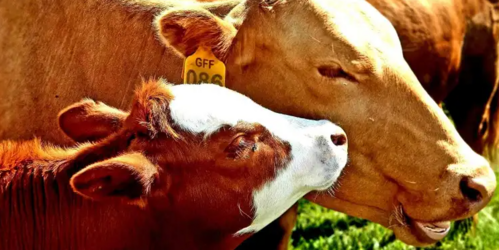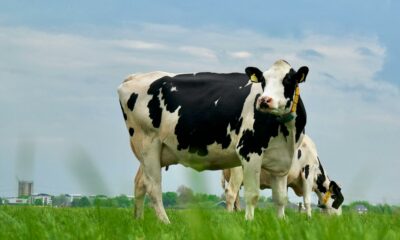Business
Foot and Mouth Disease Outbreak Escalates, Spreads from KwaZulu-Natal to Mpumalanga and Gauteng

South Africa’s agricultural sector is facing renewed pressure as an outbreak of Foot and Mouth Disease (FMD) continues to spread from KwaZulu-Natal into Mpumalanga and Gauteng. The Department of Agriculture confirmed over the weekend that two additional farms outside of KZN have tested positive for the highly contagious animal disease.
According to the department, one of the new cases was discovered in Mpumalanga through trace-forward testing after animals were purchased from an auction in Utrecht, KwaZulu-Natal. Although the livestock showed no visible symptoms at first, further investigation revealed the virus had already spread to nearby camps on the same farm.
The second confirmed case occurred in a Gauteng feedlot, which had received animals from an auction in Heidelberg. “Samples collected tested positive for the same strain of the virus identified in KZN,” the department confirmed. An epidemiological investigation is ongoing to trace animals linked to the infected auctions.
As a direct consequence of the outbreak, China has suspended imports of cloven-hoofed animals and related products from South Africa, dealing a significant blow to local exporters.
Agriculture Minister John Steenhuisen has escalated response efforts, assigning the issue to the office of the Deputy Director-General. Urgent meetings have been held with Veterinary Services and industry stakeholders to outline necessary actions to contain the outbreak.
“Biosecurity, traceability, and accurate record keeping around animal movements at auctions were raised as critical concerns,” the department said.
Farmers are being urged to restrict livestock movements, especially from known outbreak regions such as KZN, the Eastern Cape, Limpopo, and now Mpumalanga. The incubation period for FMD is 2 to 14 days, during which animals may appear healthy despite carrying the virus.
The department emphasized the legal requirement—since October 2022—to separate newly purchased animals from existing herds for at least 28 days, even when a health certificate has been issued.
Veterinarians and livestock owners are reminded that under the Animal Diseases Act of 1984, they are legally obligated to take all reasonable steps to prevent disease spread, including reporting suspicious symptoms immediately and enforcing isolation protocols.
FMD symptoms to look out for include:
-
Excessive salivation
-
Blisters in the mouth
-
Limping
-
Lesions on the hooves
In the face of an already strained agricultural economy, the department has reiterated that maintaining farm biosecurity—such as secure boundaries and controlled vehicle access—remains essential to safeguarding South Africa’s livestock industry.
{Source: IOL}
Follow Joburg ETC on Facebook, Twitter , TikTok and Instagram
For more News in Johannesburg, visit joburgetc.com



























